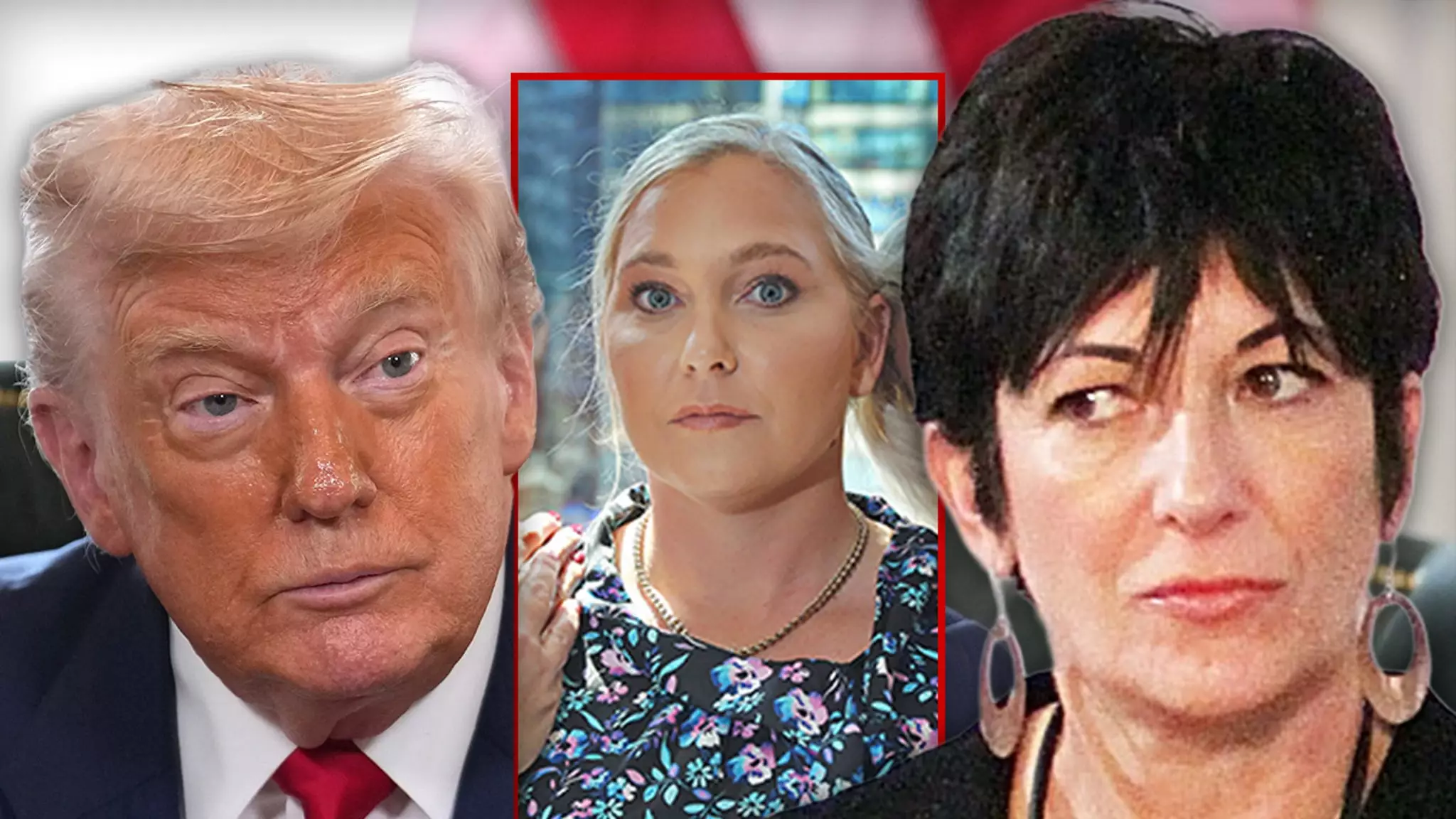In the tumultuous landscape of high-profile scandals, few stories expose the fragility of public trust quite like the Virginia Giuffre case intertwined with former President Donald Trump. Her family’s recent public statements cast a revealing light on the murky intersection of politics, privilege, and systemic failure to protect vulnerable victims. Trump’s ambiguous comments about “stealing” Virginia from Mar-a-Lago not only stir questions about his awareness of Jeffrey Epstein’s criminal enterprise but also highlight the alarming tendency of powerful figures to dismiss or minimize systemic abuse. When leaders speak casually about such grave matters, it often signals either their ignorance or their deliberate avoidance of uncomfortable truths, both of which undermine accountability.
The family’s outrage over Trump’s remark demonstrates a broader issue: the perception of impunity that comes with wealth and influence. Their demand for answers underscores not just a personal quest for justice but a collective plea for societal acknowledgment of survivor trauma. The casual framing of Virginia as “stolen” seems to trivialize the profound abuse she endured, revealing the insensitivity often exhibited toward survivors when powerful figures are involved. This moment exposes the dangerous narrative that can develop when silence and denial are overlooked, allowing abusive networks to persist unchallenged.
The Imperative of Recognizing Systemic Failures
What is most troubling about this episode isn’t just Trump’s remarks but the questions they raise about awareness and responsibility. His statement, made years after Epstein’s arrest and subsequent deaths, suggests either a possible ignorance of the depths of Epstein’s crimes or a dismissive attitude toward the victims. Virginia’s family rightly call for transparency, emphasizing their hope that such public figures recognize the scale of harm inflicted on countless survivors—many of whom remain unseen or unheard.
It is also notable how the family explicitly condemns Ghislaine Maxwell’s continued imprisonment, describing her as a “monster” deserving of lifelong incarceration. This outspoken stance reflects an insistence that accountability applies universally, regardless of social standing. Their plea also implicitly criticizes a justice system that, despite high-profile arrests, struggles to deliver genuine closure for victims. Virginia’s tragic death by suicide earlier this year only amplifies the urgency of addressing these systemic flaws—survivors’ voices must be heard and validated, not sidelined or dismissed.
Power Dynamics and the Need for Genuine Accountability
This saga reveals uncomfortable truths about the abuse of power, the protection of elites, and the emotional toll faced by survivors. While public outrage often erupts in moments like these, societal change depends on sustained efforts to confront uncomfortable truths, especially involving influential figures. The call from Virginia’s family isn’t just about personal grievance; it’s a demand for societal recognition that justice and accountability are non-negotiable.
Their appeal for the public and authorities to take survivors seriously underscores a vital shift needed in how we approach abuse allegations—moving beyond superficial condemnation to meaningful actions and reforms. No longer can we afford to dismiss connections between influential individuals and criminal networks, nor can we allow silence to be weaponized as protection. This situation underscores the importance of vigilance and integrity, especially when powerful interests threaten to overshadow victims’ voices.
Without question, the ongoing discourse around Virginia Giuffre’s story and the surrounding allegations exposes a critical need to reevaluate how society deals with abuse and accountability. The complexities of power, silence, and justice are intertwined in ways that demand not just public outrage but genuine systemic change—where survivors are prioritized, believed, and protected at the highest levels.

